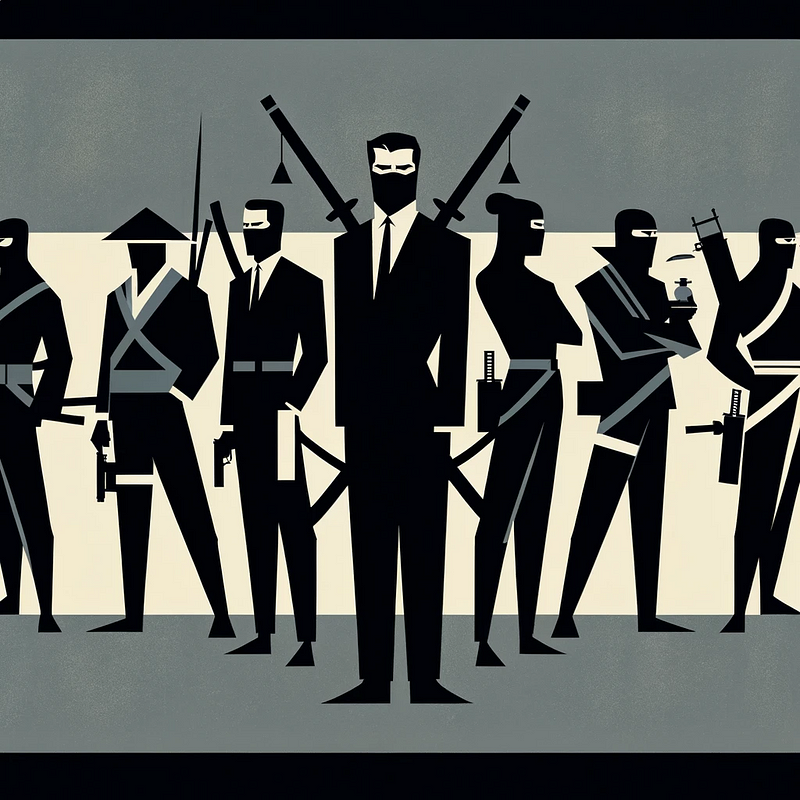Overview
The ancient Chinese book “The Art of War” by Sun Tzu goes well beyond military tactics. Written in the fifth century BC, it has thirteen chapters that analyze different facets of fighting.
The work prioritizes intelligence over force and places a great emphasis on strategic superiority—a concept that applies to contemporary business operations.
Sun Tzu’s wisdom is relevant in many areas, but especially in business, where effective resource management, competitive analysis, and strategic planning are essential.
Tzu's lessons on adjusting to shifting conditions, building on advantages, and assessing the competition have impacted contemporary company strategies and decision-making procedures.
In line with contemporary corporate objectives of optimizing outcomes with the least amount of resources, the text also emphasizes the significance of accomplishing goals effectively.
The outlined approach to effective dispute resolution and strategic foresight is especially pertinent in the fast-paced, cutthroat economic world of today.
“The Art of War” is essentially a manual for strategic thinking that provides ageless guidance on negotiating challenging competitive environments. As such, it is an indispensable tool for today’s business executives and strategists.
Making Plans and Fighting Warfare
When delving into “The Art of War,” the parts on Laying Plans and Waging War resemble the business brainiac equivalent of the ultimate chess game. The first thing that Tzu says is,
“All warfare is based on deception.”
Now, replace “warfare” with “business,” and you have a winning tactic! It all comes down to outwitting your rivals with a poker face and a strategy so incisive it might break glass.
Tzu, in Laying Plans, is like that astute teacher who understands that the devil is in the details. He stresses the value of preparation and moral law compliance, which essentially translates to getting your group on the same page.
Consider it the perfect team-building activity that makes the most of each person’s strengths.
Your financial guru, Tzu, cautions you about the risks associated with a protracted war (or market campaign). His strategy is all about swift, decisive wins—the commercial equivalent of going in and out and winning before the opposition even knows you’re there.
It’s important to use resources wisely and effectively, rather than only possessing them. This entails making every step matter and budgeting like a pro in the business sector. Don’t hesitate to act!
To put it briefly, you can create tactics that are not only wise but also long-lasting by consulting these sections. It’s about moving pieces with accuracy and foresight, like you’re the chess master of the commercial world. Who’s excited to play now? 🌟📈🚀
Attack using Tactical Positioning and Stratagem

Now that we’re in the realm of Tzu’s
“Attack by Stratagem”
and “Tactical Dispositions,” it’s time to get serious about being a cunning businessman. Here, Tzu, the grandmaster of strategy, teaches us how to win without raising a fuss in these portions.
It’s similar to playing a worldwide game of chess, where it’s more cool to outwit your opponent than to outmuscle them.
In “Attack by Stratagem,” Tzu imparts this wisdom: the most satisfying triumph is the one achieved without resorting to force.
This is gold for business mavericks. Imagine outwitting your rivals with such ease that they fail to recognize you coming. It involves being astute, creative, and anticipatory. Making intelligent moves is more important than simply moving.
Then, everything revolves around positioning in
“Tactical Dispositions.”
It’s similar to locating the ideal location on the beach: it should be just right for the sun and not too near the ocean. This refers to setting up your firm to capitalize on your advantages and mitigate your disadvantages.
It’s all about being aware of your surroundings and making the most of them.
Thus, it matters how you do things as much as what you do. You’re not just playing the game; you’re changing it with a little of Tzu’s insight. Are you prepared to lead your firm as its strategic architect? 🌟🤓🛠
Vitality, Weaknesses, and Strengths

Fasten your seatbelts, for Tzu’s “Energy” and “Weak Points and Strong” chapters are where business turns into a high-stakes game. This place has the atmosphere of a ninja and a detective together.
Tzu’s playbook defines “energy” as dynamism and momentum. Consider it the turbo-charged engine of the corporate world. It involves enhancing the energy and capabilities of your group to forge an unstoppable force.
Here is what Tzu is essentially saying:
“Hey, it’s not just about having the juice; it’s about how you squeeze it.”
Here, timing, rhythm, and velocity are your closest allies. It’s similar to leading an orchestra, in which each note is precisely placed to produce a successful symphony.
Now that we’ve reached “Weak Points and Strong,” this is the part where you don your Sherlock Holmes cap. We can learn to be experts in reconnaissance from Tzu.
It all boils down to understanding not only your strengths but also your potential areas of vulnerability. This translates to business as conducting your research and being aware of the advantages and disadvantages of your organization as well as those of your rivals.
You have to know when to fold, when to hold, and when to go all in, just like in a game of business poker.
To put it briefly, these parts focus on being astute, quick, and strategic. Play to your strengths, be aware of them, and be one step ahead of the opposition at all times. Are you prepared to rev up your tactics and identify the best course of action for success? 🌟💡🚀
Using Spycraft

Greetings from Tzu’s shadowy realm of “The Use of Spies.” In this exciting chapter, Tzu assumes the role of the ultimate spymaster, reminding us that knowledge is the most potent tool in the corporate world.
It’s similar to being in a high-stakes spy film where spotting your opponents’ movements is crucial to winning.
Tzu understood that knowledge is the key to the art of fighting, or maybe more accurately, the art of winning—the kind of knowledge your rivals hope you lack. This applies to trend analysis, market research, and psychological insights into the customer base in the corporate world.
It involves sending out your “spies,” or research teams and data analysts, to collect valuable information.
Consider it as having a map that is hidden and leads to treasures. You are “spying” when you make predictions in addition to observing the present. It’s about staying one step ahead of the competition and having knowledge that allows you to adjust your tactics when necessary.
Tzu’s advice on using spies is essentially a reminder that in business, knowledge is profit rather than just power. Are you prepared to use the power of insights to dominate the market and let loose your inner corporate spy? 🔵️♂️📊🐀
Final Thoughts

As we get to the end of our exploration of Tzu’s strategic genius in “The Art of War,” it’s evident that this work is a manual for contemporary business mastery rather than only an antiquated manual on war tactics.
Consider Tzu to be your sage tutor, someone who has seen it all. He teaches you the strategy as well as the mechanics of the game.
Tzu’s principles help you navigate the difficult economic battlefield by employing information as a secret weapon, maximizing your resources, and outwitting adversaries with shrewd strategies.
So what is this situation’s call to action? It’s easy: use strategy. Using the ideas of Tzu can improve your performance, regardless of your level of experience as a business mogul or aspiring entrepreneur. It involves being perceptive, flexible, and constantly one step ahead.
Keep in mind that working smarter, not harder, is more important in the corporate world. So arm yourself with Tzu’s wisdom, master the art of strategic planning, and get set to take over your firm.
Let’s shift these antiquated tactics into contemporary triumphs. Are you prepared to leave your imprint and embrace your inner Sun Tzu? Let’s go win! 🌟📈🚀
Compliance, Guidelines, and Acknowledgements

- Affiliate Disclosure: As a participant in the Amazon Affiliate Program, I earn from qualifying purchases made through links provided in this content. This means if you click on a link and make a qualifying purchase, I may receive a commission at no additional cost to you. Thank you for supporting my work and allowing me to bring you valuable insights!






